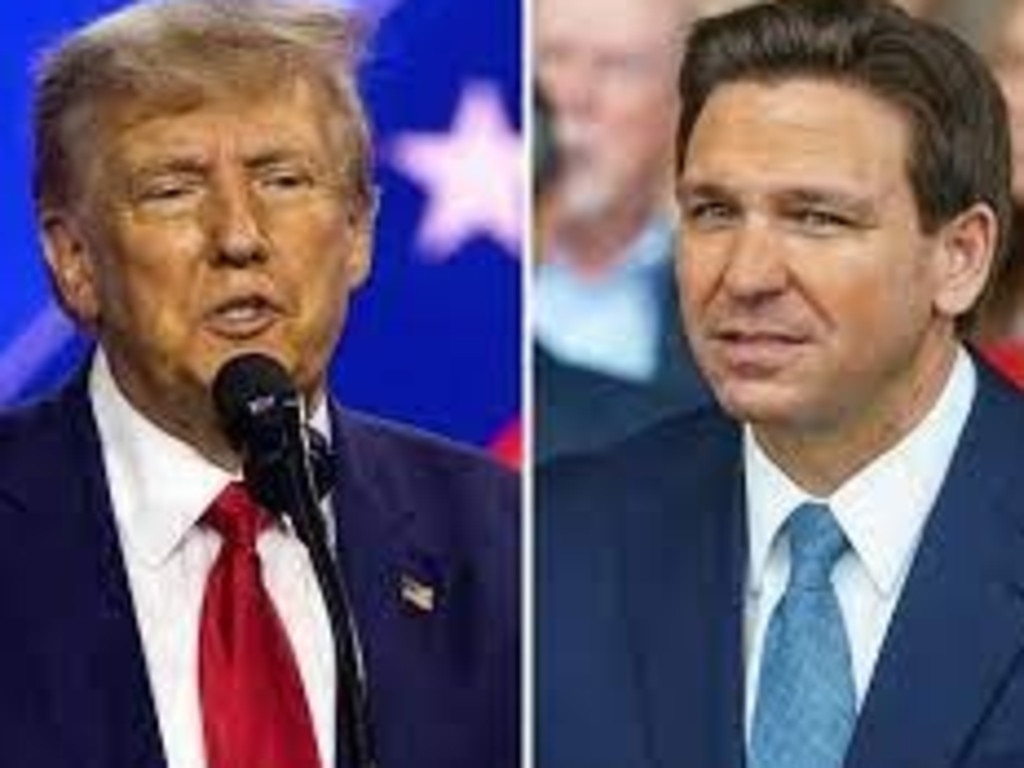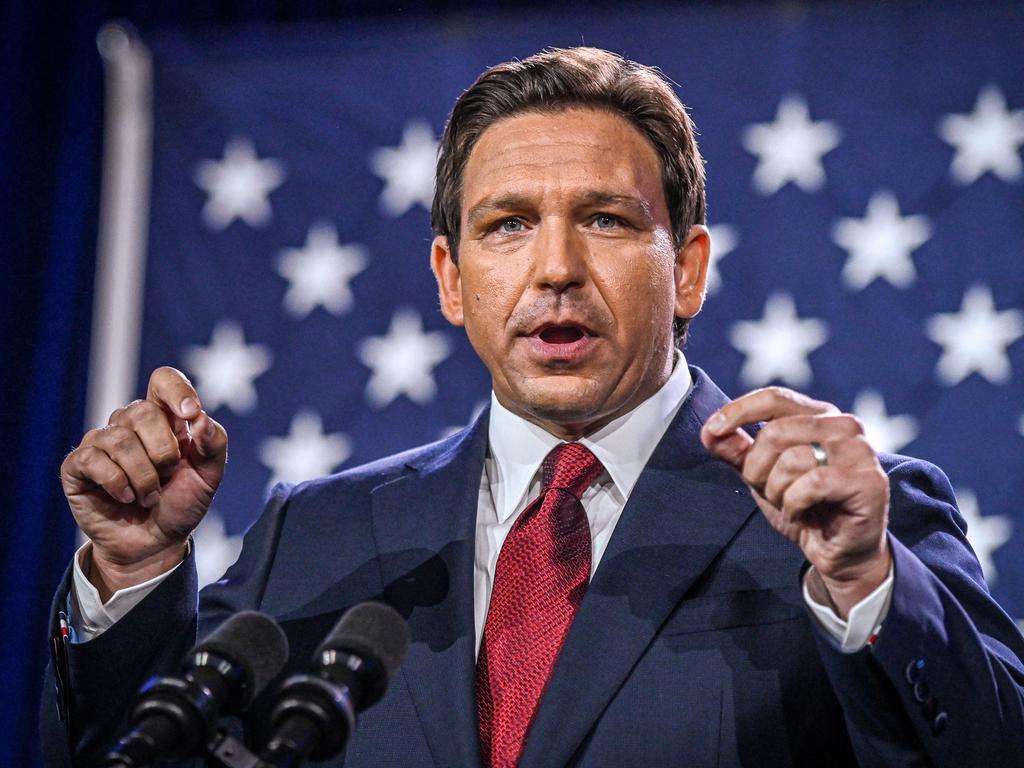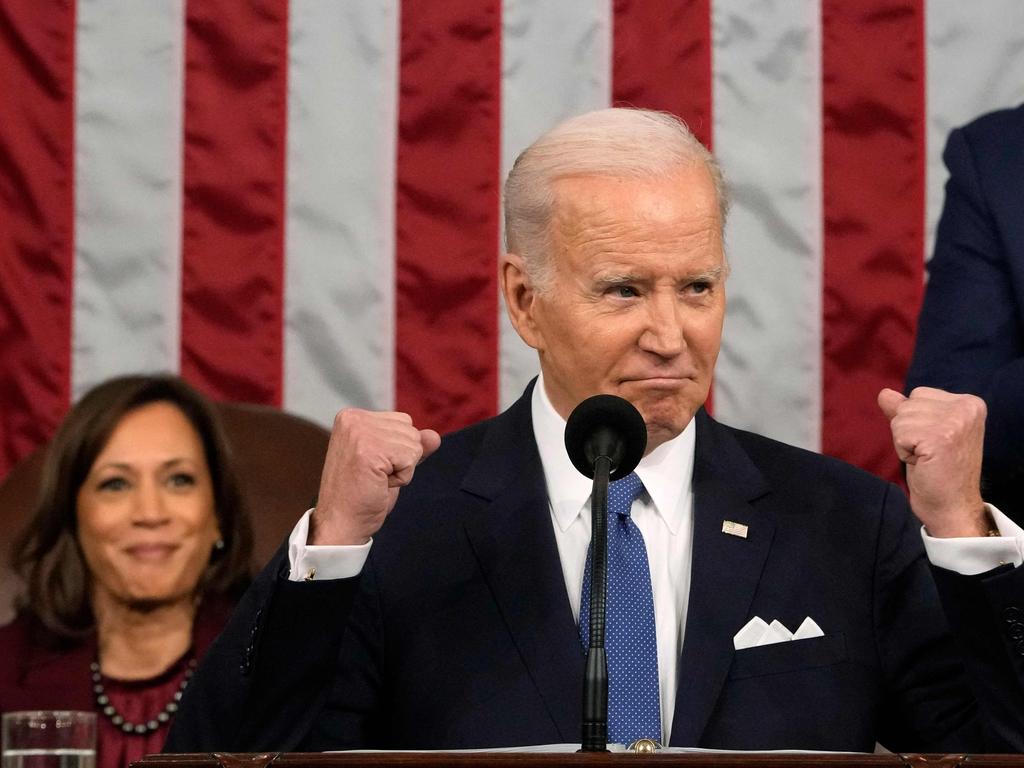
Ron DeSantis is sketching out a presidential campaign based on his manifest governing success in Florida and as a fearless fighter for principle who ignores the polls. Then how to explain his puzzling surrender this week to the Trumpian temptation of American retreat?
That’s not too strong a way to describe his decision to call the war in Ukraine a “territorial dispute” that isn’t a vital US interest.
He told Fox News that giving the Ukrainians long-range weapons and fighter jets ought to be “off the table,” invoking the prospect of nuclear war with Russia.
And he called for “peace,” albeit without explaining how to avoid making it a peace of the grave for Ukrainians if the West withdraws its support while Vladimir Putin advances.
***
The argument goes that Mr DeSantis is reading the political mood: About 40 per cent of Republicans say the US is providing “too much” support for Ukraine, up from about 9 per cent in March last year. Yet some of this is a function of polarised US politics. Many Republicans oppose helping Ukraine because President Joe Biden is doing it, and the mirror image is Democrats from the antiwar left putting Ukrainian flag stickers on their electric cars.
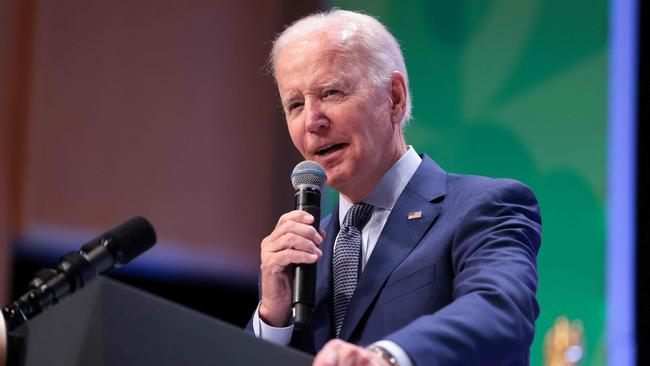
Mr Biden hasn’t helped public support for Ukraine by tethering his case to bromides about democracy and international “rules,” rather than the US national interest, which for good reason grates on many GOP voters.
Mr Biden hasn’t worked to build coalitions with the hard-power Jacksonians in Congress such as Sen. Tom Cotton. He also hasn’t made a dispassionate case for why keeping an adversary like Mr Putin off the NATO border and degrading his military power makes the US safer.
Mr DeSantis has a point that Mr Biden doesn’t have “defined objectives” in Ukraine – other than giving it enough arms to resist but not enough to drive Russia out of the country. This is a recipe for extended conflict. The Governor also rightly warns about the threat from China and dwindling U.S. weapons arsenals.
But he may regret describing the war in Ukraine as a mere “territorial dispute.” This is flirting with GOP isolationism that has emerged from time to time in history and has usually been an electoral cul-de-sac. The party’s isolationism in the 1930s consigned it to decades in the wilderness, and that naivete was on national display when Japan attacked Pearl Harbor. The electoral stigma wasn’t removed until Dwight Eisenhower, the victor of D-Day, rescued the GOP from Republican Robert Taft’s unwillingness to support the North Atlantic Treaty Organisation.
The modern GOP model is Ronald Reagan, who combined principle with practicality and sold his policy to the public through persuasion. He paired a rapid expansion of U.S. military power with diplomatic efforts to end the Cold War. He saw the struggle against the Soviet Union as moral, but he didn’t hesitate to arm enemies of communism, even unpalatable ones.
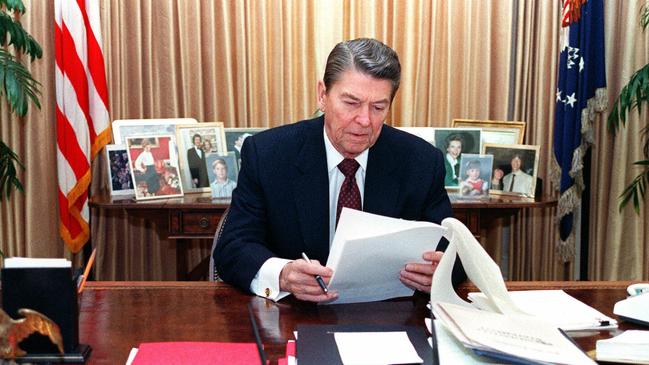
Aiding Ukraine now is in that Reagan Doctrine tradition.
Reagan also didn’t indulge a false choice between influencing world affairs and managing economic and social problems at home. He saw a roaring economy and cultural cohesion as essential elements of national power. Reagan hated nuclear weapons and wanted to protect against their use. But he didn’t let Soviet threats dictate US actions, as the populist US right is doing now with Mr Putin.
All of this is captured in a recent Cold War history from William Inboden, and by press reports that Mr DeSantis recently sat down with Mr Inboden to discuss foreign policy. Mr DeSantis is clearly still refining his views, and his remarks on Ukraine left some room to improve them later.
***
Before he joins the campaign in earnest, the Governor may want to consider that the political risks on foreign policy aren’t only from the Trumpian right. Abandoning Ukraine may cost him with GOP voters who think he is bending in fear of Mr Trump. Mr DeSantis has sounded more hawkish notes on Russia in the past, and the press will play those up as contradictions. This could become less a policy issue than a matter of character. What does Ron DeSantis believe, anyway?
The politics of Ukraine may also shift as facts on the battlefield do. If Ukraine manages a victory even as Republicans call for retreat, the GOP will have surrendered one of its core selling points as the party voters trust on national security. It would then be all the harder to marshal support and resources for a stronger U.S. military deterrent against China.
And what if Russia swallows all or most of Ukraine? Mr Putin will then set up shop closer to the Polish border and be even stronger as a malign force in Europe.
The US will be drawn deeper into the continent’s problems, not free to focus on the threat posed by China, which in any event will conclude that the US is weaker. Is that the world President DeSantis wants to inherit on Jan. 20, 2025?
***
Reagan is declassé to some on the right, but China and Russia and Iran are combining forces to threaten the US in a way not seen since the 1980s.
Still relevant is Reagan’s 1983 warning, in his “evil empire” speech: “Beware the temptation of pride,” the impulse to “blithely” declare “yourselves above it all,” to “ignore the facts of history” and label the contest “a giant misunderstanding” and “thereby remove yourself from the struggle between right and wrong.”
The Gipper’s “peace through strength” remains the benchmark for Republican success in world affairs. Let’s hope there’s still a lane for that kind of candidate in the GOP primary field, or the country and world are in more trouble than we have imagined.
The Wall Street Journal


